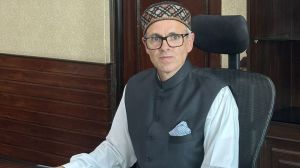Recession overshadows 2016 Olympic bids
The four cities vying for the 2016 Olympics reached a milestone this week with the submission of their official bid books.
The four cities vying for the 2016 Olympics reached a milestone this week with the submission of their official bid books,as each tries to position itself as the most financially secure candidate in the face of the global recession.
Chicago,Madrid,Tokyo and Rio de Janeiro submitted their files to the International Olympic Committee in Lausanne,Switzerland,before the Thursday midnight deadline,setting the stage for the final eight months of their global campaign.
The bid books,covering 400-500 pages and several volumes,provide details on 15 different criteria requested by the IOC,including plans for sports venues,infrastructure,environmental protection,accommodations,transportation,security and financing.
After Madrid and Rio submitted their documents Wednesday,Tokyo and Chicago followed on Thursday. All were low-key affairs. Chicago’s book was delivered by Stuart Owen Rankin,grandson of Olympic great Jesse Owens,winner of four gold medals at the 1936 Berlin Games.
The IOC authorized the cities to release the bid documents on their Web sites on Friday,the same day all four are planning news conferences in the candidate cities.
The IOC evaluation commission will study the bid files and visit the four cities – Chicago from April 4-7,Tokyo from April 16-19,Rio from April 29-May 2 and Madrid from May 5-8.
The panel will issue a report assessing the bids a month before the IOC votes on the host city in Copenhagen on October 2.
Critics have described Olympic bid books as works of fiction because what they promise is often far from the reality years later.
“A lot of it was fiction,wishful thinking,hope,prayer and all that,” senior Canadian IOC member Dick Pound said. “But the bid books are now more responsible than they used to be. Now you have an evaluation commission to find out if there has been gross exaggeration.”
How many of the 115 IOC members will actually read the bid books is a different matter. “Probably fewer than the candidates would hope,” Pound said.
The final decision could come down to geopolitical factors,including the impact of President Barack Obama’s support for his hometown’s bid to take the Summer Olympics to the US for the first time since the 1996 Atlanta Games.
But,more than ever,financial issues will be closely scrutinized because of the economic downturn.
What’s certain is that no city can match the spending of China,which invested more than $40 billion on new venues and infrastructure for last year’s Beijing Olympics.
Organizers of the 2010 Winter Games in Vancouver and 2012 London Olympics are feeling the pinch,with both forced to dip into contingency funds to cover shortfalls caused by the slowing economy and lack of private financing. London’s overall budget has grown to 9.3 billion pounds (USD 13.4 billion).
“We know the global economic recession is going to persist for some time and will lead into preparation time for the Olympics,” said Will Jennings,a research fellow at the University of Manchester. “Every city is going to be exposed. It’s not easy to say one bid is inherently safer than the others. They all have different features.”
Tokyo,which hosted the 1964 Olympics,claims it has the “most compact,sustainable and financially robust” bid and says it has already secured more than USD 4 billion for venue construction and infrastructure.
“The money is in the bank,” said Hidetoshi Maki,deputy director of the bid.
Madrid calls itself the “safest choice” during the financial crisis because it has 77 percent of venues ready or under construction. The Spanish capital projects spending USD 317 million for new venues.
Chicago,whose bid relies heavily on existing and temporary venues,puts its total budget at around USD 4.7 billion.
“We’re fortunate in that we have so much of our infrastructure already in place and modernized,” bid chairman Patrick Ryan said recently.
Brazil,seeking to bring the games to South America for the first time,has said it is not as affected by the crisis as other nations. President Luiz Inacio Lula da Silva said big infrastructure projects planned for coming years will go ahead,including transportation projects timed for the 2014 World Cup that could also apply to the Olympics.



- 01
- 02
- 03
- 04
- 05




























